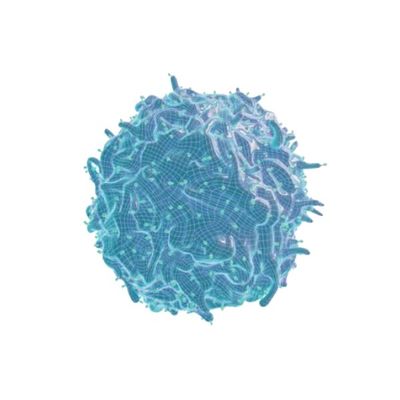

- Home
- Companies
- Celularity Inc.
- Products
- Celularity - Model CYNK-101 - ...

Celularity - Model CYNK-101 - Genetically-modified PNK Cells
We are developing CYNK-101 as a combination treatment for multiple cancer indications. CYNK-101 is manufactured from a specific type of immune cell, NK cells, that we extract from postpartum placentas and then genetically engineer to increase cell killing activity when introduced together with an antibody-based anti-cancer treatment.
Preclinical studies show that CYNK-101 plus an antibody therapeutic displays cell killing activity against lymphoma cells in vitro. We expect CYNK-101 to work in vivo by augmenting antibody-dependent cytotoxicity (ADCC), increasing the efficacy of already-approved antibody therapeutics.
We are also engineering PNKs to directly recognize tumor cells even in the absence of the appropriate signals by expressing chimeric antigen receptors (CARs) on their surface. This enhances anti-tumor activity even when tumors express high levels of inhibitory ligands.
Natural Killer (NK) cells are part of the innate immune system and they produce cytotoxic and cytokine effector responses against stressed cells such as virally infected and tumor cells. The hallmark of NK cell function is the natural mechanisms by which they recognize cancerous or virus-infected cells, become activated, and subsequently eradicate those cells. We are developing pipeline programs dedicated to augmenting NK cells’ anti-cancer functions through various genetic modification approaches.
CYNK-101 is an allogeneic, off-the-shelf, NK cell product derived from human placental hematopoietic stem cells and gene-modified to express high-affinity and cleavage-resistant CD16 (FCGRIIIA) variant.
One of the key mechanisms of NK cell effector function is Antibody-Dependent Cellular Cytotoxicity (ADCC), a response driven by CD16 receptors. However, the affinity and durability of the response by native CD16 receptors are regulated by polymorphism and activation-induced receptor shedding. To augment and sustain ADCC responses, we have developed the CYNK-101 product pipeline for combination with tumor-targeting monoclonal antibodies.
In vitro studies have shown higher and sustained ADCC responses by CYNK-101 in combination with monoclonal antibodies against hematological and solid tumors.
